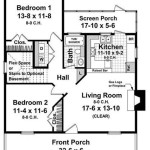```html
Chinese-American Planning Council Home Attendant Program: Supporting Independence and Well-being
The Chinese-American Planning Council (CPC) Home Attendant Program stands as a significant resource within New York City's network of home healthcare services. The program provides in-home care to individuals, often elderly or disabled, who require assistance with activities of daily living. This support enables these individuals to remain in their homes, fostering a sense of independence and maintaining their connection to their communities. The program's specific focus on serving the Chinese-American community distinguishes it from broader home care agencies, addressing the unique linguistic and cultural needs of its clients.
The CPC, established in 1965, has a long history of serving the Asian American community in New York City. What began as a small community center has grown into a comprehensive social service organization, addressing a wide range of needs, including early childhood education, youth services, workforce development, senior services, and of course, home healthcare. The Home Attendant Program is a natural extension of CPC's mission to empower and support individuals and families, particularly those facing barriers related to language, culture, and immigration status.
The importance of home attendant services cannot be overstated. For many individuals, the alternative to in-home care is placement in a nursing home or assisted living facility. These institutional settings can be costly, and they often result in a reduced quality of life. Remaining at home, surrounded by familiar surroundings and loved ones, offers a sense of comfort and security that is crucial for maintaining mental and emotional well-being. The CPC Home Attendant Program directly contributes to this goal by providing the necessary support to make independent living a viable option.
Addressing Cultural and Linguistic Barriers
One of the key strengths of the CPC Home Attendant Program lies in its ability to address the cultural and linguistic barriers that many Chinese-American seniors face when seeking healthcare. Many older adults in this community are more comfortable speaking Chinese, and they may have limited English proficiency. This can make it difficult to communicate their needs to healthcare providers and to understand medical instructions. Similarly, cultural differences can influence attitudes towards healthcare and preferences for caregiving practices.
The CPC Home Attendant Program directly addresses these challenges by employing home attendants who are fluent in various Chinese dialects, including Mandarin, Cantonese, and Fujianese. This ensures that clients can communicate their needs and concerns effectively, reducing the risk of misunderstandings and improving the overall quality of care. Furthermore, the program's staff members are trained to be culturally sensitive, understanding and respecting the unique values and traditions of the Chinese-American community. This cultural competency fosters trust and rapport between home attendants and clients, leading to more personalized and effective care.
Beyond language proficiency, the program also considers cultural preferences in matching clients with home attendants. For example, some clients may prefer a home attendant who shares their regional background or who is familiar with specific Chinese customs. The CPC Home Attendant Program strives to accommodate these preferences whenever possible, recognizing that cultural compatibility can significantly enhance the client-caregiver relationship. This personalized approach sets the CPC program apart from other home care agencies that may not have the same level of cultural understanding.
The ability to communicate effectively and to understand cultural nuances is particularly important when dealing with sensitive issues related to health and personal care. Home attendants often assist clients with tasks such as bathing, dressing, and toileting. These activities require a high degree of trust and sensitivity. The CPC Home Attendant Program's commitment to cultural competency ensures that these tasks are performed with respect and dignity, minimizing discomfort and embarrassment for clients.
Scope of Services Provided
The CPC Home Attendant Program offers a comprehensive range of services designed to meet the diverse needs of its clients. These services are typically tailored to each individual's specific requirements, taking into account their medical condition, functional abilities, and personal preferences. The program's case managers work closely with clients and their families to develop individualized care plans that address their unique circumstances.
Common services provided by home attendants include assistance with activities of daily living (ADLs), such as bathing, dressing, eating, and toileting. Home attendants also provide support with instrumental activities of daily living (IADLs), which are more complex tasks that enable individuals to live independently. These may include meal preparation, light housekeeping, laundry, medication reminders, grocery shopping, and transportation to medical appointments. The specific tasks performed by a home attendant will vary depending on the client's needs and the scope of their care plan.
In addition to providing hands-on assistance, home attendants also offer companionship and emotional support. Many clients who require in-home care experience feelings of loneliness and isolation. Home attendants can provide social interaction and emotional support, helping to alleviate these feelings and improve the client's overall quality of life. This may involve simply engaging in conversation, reading aloud, playing games, or accompanying the client on outings.
The CPC Home Attendant Program also coordinates with other healthcare providers to ensure that clients receive comprehensive and coordinated care. Home attendants can communicate with doctors, nurses, and other members of the healthcare team to report on the client's condition and to ensure that they are following their treatment plan. This collaborative approach helps to prevent complications and to optimize the client's health outcomes.
The program also offers specialized services for individuals with specific medical conditions, such as Alzheimer's disease or other forms of dementia. Home attendants who work with these clients receive specialized training in dementia care, enabling them to provide appropriate and compassionate support. This may involve managing behavioral symptoms, providing cognitive stimulation, and ensuring the client's safety.
Navigating Eligibility and Accessing the Program
Accessing the CPC Home Attendant Program typically involves an assessment of the individual's needs and eligibility for various funding sources. In New York City, many individuals are eligible for Medicaid-funded home care services. Eligibility criteria vary depending on the specific program, but generally include income limits, medical necessity requirements, and residency requirements. The CPC Home Attendant Program's staff members can assist individuals and families in navigating the complex application process and in determining their eligibility for different funding sources.
The first step in accessing the program is usually to contact the CPC Home Attendant Program directly and request an assessment. A case manager will then conduct an in-home assessment to evaluate the individual's needs and to determine the appropriate level of care. This assessment will typically involve gathering information about the individual's medical history, functional abilities, and social support network. The case manager will also discuss the individual's goals and preferences for care.
Based on the assessment, the case manager will develop an individualized care plan that outlines the specific services to be provided by the home attendant. This care plan will be reviewed and approved by the client and their family, ensuring that it meets their needs and preferences. The care plan will also specify the frequency and duration of home attendant visits.
Once the care plan is in place, the CPC Home Attendant Program will assign a qualified home attendant to the client. The program strives to match clients with home attendants who are a good fit in terms of language, cultural background, and personality. The home attendant will then begin providing services according to the care plan. The case manager will continue to monitor the client's progress and to make adjustments to the care plan as needed.
The CPC Home Attendant Program also provides ongoing support and training to its home attendants. This ensures that they are equipped with the knowledge and skills necessary to provide high-quality care. The program also has a dedicated team of supervisors who are available to provide guidance and support to home attendants.
The Chinese-American Planning Council Home Attendant Program plays a vital role in supporting the independence and well-being of Chinese-American seniors and individuals with disabilities in New York City. By addressing cultural and linguistic barriers, providing a comprehensive range of services, and assisting individuals in navigating the eligibility process, the program empowers individuals to remain in their homes and to maintain their connection to their communities.
```
John Sullivan Coo Cpc Home Attendant Program At Chinese American Planning Council The Org

Facts By The Numbers Home Care In New York State

Cpc Calls For Ending 24 Hour Shifts At Ny State Hearing On Homecare Chinese American Planning Council
Chinese American Planning Council The Org

1184841926 Npi Number Chinese American Planning Council Home Attendant Program Inc New York Ny Registry Medical Coding Library Www Hipaaspace Com 2024

About Us Chinese American Planning Council
Wayne Ho President Ceo At Chinese American Planning Council Home Attendant Program Inc The Org
John Sullivan Coo Cpc Home Attendant Program At Chinese American Planning Council The Org
Ivan Jian Hui Kuang Supervisory Personnel Specialist At Chinese American Planning Council Home Attendant Program Inc The Org

Cpc S Asian Child Care Resource Referral Program Achieves National Quality Assurance Chinese American Planning Council








